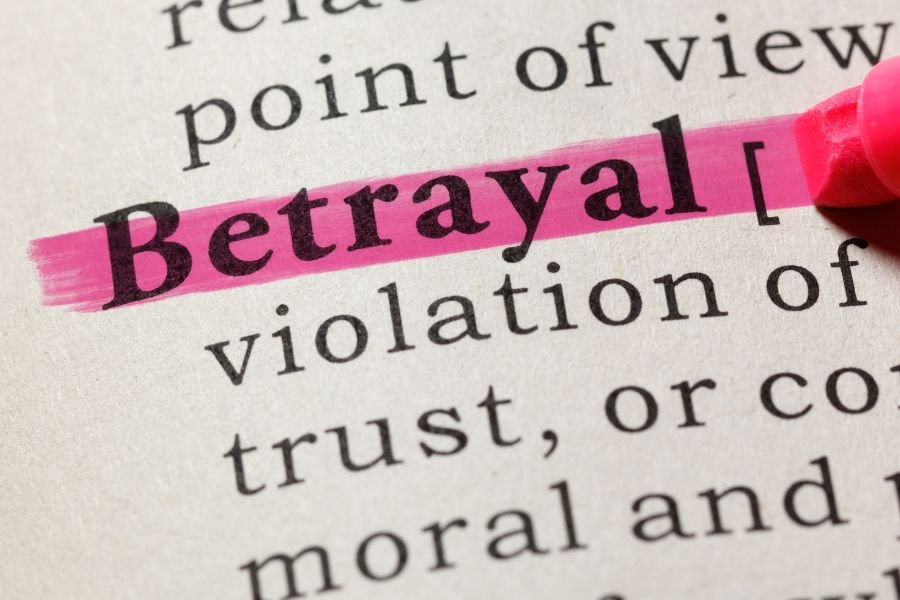5 FRAGILE FRIENDSHIP FOUNDATIONS TO AVOID
Most likely the friendships you formed as a kid were made due to proximity.
Your childhood best friend either lived in your neighborhood, went to the same school as you, or they were the children of your parent’s friends.
That changed when we became adults.
We exercised our free will when it came to choosing our friends and based our decisions on a variety of different factors like interests, shared beliefs, values, etc.
But sometimes we birthed our friendships on things that weren’t so positive, or on temperamental feelings that clouded our judgment, thus forming these fragile foundations.
The way the friendship has been formed can play a significant role in how we navigate the relationship, and expose how we truly show up for one another.
Sometimes we don’t even realize the foundation of our friendships may be shaky until something bad happens that leaves us feeling unsure.
If you were ever confused or questioned a friend’s actions toward you, checking out the foundation provides some understanding and shines a light on a truth you may not have realized before.
This blog post will help you examine the foundation of your current friendships, and provide tips on how to strengthen those relationships that were already built on a fragile foundation.
FWI DISCLAIMER
A lot of us (me included) have likely started a friendship on one of these fragile foundations and still have great relationships with those people to this day.
But not without putting in a lot of work.
Now that I am a little older and wiser, when it comes to new friendships I make a more conscious effort to avoid the types of relationships that I know do not serve me well.
At the end of the day, you have to do what feels right for YOU!
Now let’s get into it!
The 5 Fragile Friendship Foundations
1| A foundation based on shared trauma
WHAT THIS IS: A form of trauma bonding.
One definition found on psychologytoday.com defines a “trauma bond” as an attachment formed between two people who unconsciously bond with each other based on shared trauma.
As humans, we have a deep desire to be understood.
So naturally, when we go through something traumatic with a person, or meet someone who is going through something traumatic that we’ve experienced, we gravitate toward them, and vice versa.
This is especially true in circumstances that are uncommon or unique.
WHY IT’S PROBLEMATIC: While it can be comforting to have that empathy and understanding, it’s a fragile foundation because what brought you two together is pain.
One issue is that both of you could serve as a constant reminder to each other of an uncomfortable time in your lives (which could also be triggering).
Another issue is if one of you has done the healing work and the other hasn’t.
The friend who’s done the work may pull away because she doesn’t want to risk undoing the progress she’s made.
Or she may feel guilty that she’s moved on when the other friend hasn’t.
This type of connection makes it difficult to not be reminded of the pain.
2| A foundation based on mutual dislike of the same person
WHAT THIS IS: Have you ever heard the quote, “The enemy of my enemy is my friend?” That’s what forming a friendship from mutual dislike is all about.
This could be you and your coworker both hating your boss.
Or meeting a girl who used to date your ex, and now you both can’t stand him anymore.
Or befriending someone because you both don’t like a girl in your class who thinks she’s better than everyone else.
In any circumstance like these, the root of this friendship is negativity.
WHY IT’S PROBLEMATIC: You’re forming a friendship out of animosity you both hold towards someone else.
In the long run, when that person is no longer relevant in either of your lives, the friendship weakens.
What was once fun for y’all was making jokes, talking about that person, and discussing the impact they had on your lives.
When that’s gone, what do you really have left?
Something that could also happen (and does happen a lot with maturity), is that one person either forgives or starts to like the person that you both initially hated.
Now the other friend may resent you for “switching sides,” and you may think she needs to “grow up” and let it go.
3| A foundation based on keeping your enemies close
WHAT THIS IS: If you’ve ever had to read "The Art of War" by Sun Tzu, you probably learned tons of strategies on how to protect yourself and come out victorious against an enemy.
And that’s great for war, but not for friendships.
This looks like befriending anyone you used to have issues with or know has issues with you.
This is when you think that if you get close to them you could better anticipate their actions, or convince them to like you so that they will leave you alone.
The root of this friendship is fear.
WHY IT’S PROBLEMATIC: YOU DON’T REALLY LIKE THEM.
You’re afraid of them hurting you, and that has no place in a real friendship.
While friends may hurt you unintentionally sometimes, you should never have to be worried that a friend would do so on purpose.
You’re also putting yourself right in harm's way.
No matter how much you think you have the upper hand, you’re actually inviting her into your personal space and giving her an advantage to potentially hurt you more.
Not to mention the anxiety you’re giving yourself by constantly being on guard.
4| A foundation based on bad habits and self-sabotaging behavior
WHAT THIS IS: A friendship centered around vices or bad behaviors that do not serve our individual growth and well-being.
This looks like friends who only like to be around one another when you’re smoking or drinking.
This looks like friends who egg each other on to engage in petty actions toward others.
This looks like friends who enable each other to procrastinate, give up, or not even try.
This friendship foundation is stagnating and rooted in self-destruction.
WHY IT’S PROBLEMATIC: If you’re not careful, these friendships can and will keep you stuck.
They have the potential to derail your personal growth by encouraging you not to change, because doing so makes them uncomfortable.
Certain people befriended a version of you that makes them feel secure and familiar.
If you outgrow the self-sabotaging behavior, they may feel intimidated by you and gaslight you into believing that you changed for the worse.
Sadly, jealousy can come into play here because those friends like the version of you that is as unhealed as they are.
When you start to grow and do better, they may feel left behind and envious that you’re doing something that they are afraid to do themselves.
5| A foundation based on convenience
WHAT THIS IS: Friendships that are formed due to easy accessibility to one another.
Much like being friends due to proximity, it’s easy to spend time with this person because for whatever reason, you’re often around one another.
This looks like being friends because your significant others are friends.
This looks like being friends because you work together.
This looks like being friends because you both take the same classes.
The foundation of this friendship is opportunity.
WHY IT’S PROBLEMATIC: Sometimes these friendships aren’t formed by a genuine interest in one another, but for other reasons like loneliness or the advantages that come from being friends.
In these cases, one of you could be truly invested, while the other will be ready to drop the friendship the minute it is no longer convenient to them or doesn’t fit into their everyday life.
There is also the issue of the friendship being centered around whatever convenience that brought you all together.
For example, being friends with a coworker and only talking about work. That will get old fast and make for a very shallow relationship.
These friendships can be misleading, because being around someone a lot creates the illusion that you all care for each other more than you actually do.
How to Strengthen a Friendship Built on a Fragile Foundation
You don’t have to give up on your friendships that may have been built on a fragile foundation.
As I noted in the FWI DISCLAIMER in the above section, many of us have gone on to have amazing friendships despite the way they may have been formed.
But here’s the thing, I also noted that there was work that we had to do to get into a healthier space.
Below you’ll find practical steps to take to help strengthen your friendships.
1| Identify what makes it fragile
Reflect on the circumstances in which you met your friend and how the friendship began.
What about the formation makes you question its authenticity?
Using the previous example, if your friendship was based on the fact that you started as coworkers, address that truth.
Discuss with your friend how you want to make sure you build a solid friendship that is not centered around work.
You can check out the blog post HOW TO BUILD GENUINE COWORKER FRIENDSHIPS to learn how to navigate this situation.
2| Be honest about the issues that come from the fragile foundation
Let’s say you have a friendship that was formed based on gossiping about people that you both don’t like.
That may cause you to question if your friend ever gossips about you to other people.
That’s a valid insecurity that comes from starting a friendship on something negative.
Acknowledging that insecurity will help the both of you work on trusting one another.
Sometimes we don’t like to address these uncomfortable feelings because it can be hurtful, but ignoring them only hinders the friendship.
3| Be intentional about addressing those issues with action
Now that you know what’s making you feel uncomfortable in your friendship, you need to DO SOMETHING to address the concern.
It may take a few attempts to find a solution, but doing nothing or ignoring it will not make the issue go away.
Truthfully, it will only make it worse.
Let’s say your friendship was based on getting together for happy hour every week to vent about life stresses, and you have decided to stop drinking.
Now you have concerns about how you and your friend will connect. Together, you all need to find a healthier alternative for catching up.
Maybe instead of happy hour, you meet up for coffee once a week, go for a walk, or do some form of crafting.
Find other interests that you both have where you can also indulge in conversation.
Side note: These conversation starters can help you all get the girl talk flowing in a sober state.
It will be uncomfortable at first, but you two will eventually find your groove.
4| Maintain friendship awareness and be mindful of the fragile foundation
Once you’ve identified the fragile foundation, discovered the problems that came from it, and determined a solution on how to address it, all that’s left to do is monitor it.
It’s easy to get comfortable and slide back into the old ways you and your friends managed your friendship before, which is why maintaining friendship awareness is key.
Let’s say you and a friend were close because she used to be your neighbor, and you hung out all the time.
Now she’s moving an hour away and lets you know that she’s worried the friendship will suffer because she’s no longer next door.
To prevent this from happening, you both decide to meet for dinner once a month, at minimum.
Now it’s on both of you to honor that commitment.
Of course, life happens and it may not be perfect, but keep track in some way so that neither of you let too much time pass before you get together again.
For more tips on flourishing long-distance friendships, check out this blog post HOW TO NAVIGATE LONG-DISTANCE FRIENDSHIPS.
In the bible, you can find The Parable of the Two Builders (Matthew 7:24-27) which tells the importance of building anything on a firm foundation.
Friendships are not excluded here.
If you’re still not sure about the foundation of your friendship, ask yourself these questions:
How did we meet?
Do we have a well-rounded friendship?
Can I trust this friend with my vulnerabilities and secrets?
Can I depend on this friend?
What do we connect over?
Do I really know this friend?
However you answer these questions will guide you on how to move forward and do the work to build healthier, intentional friendships!
Do you think the foundation of your friendship is important? Share your thoughts in the comments!









